
Momentous occasion
Last updated: 16 September 2020 From the section 1971 Muktijuddho
Efforts were underway to locate an ideal place for the formal inauguration of the new government. It was decided that the Bengali government would be formed on Bangladesh soil and not in India so that it can be accepted and interpreted as the will of the Bengalis and not be perceived as an Indian conspiracy to the delight of West Pakistani critics.
The Awami League leadership did not want to make the Proclamation and form the government in India as it would be branded as a puppet government of India and run the risk of losing its credibility.
They were determined to do this right inside Bangladesh territory, in public and with proper international media coverage.
Daily Sun (Bangladesh)
Barrister Amir-ul Islam chooses mango grove of Bhaberpara village of Baidyanathtala as venue for the formal oath ceremony
The team was searching the whole border area for the safest location to conduct the oath ceremony. Initially, Chuadanga, a city in Khulna Division, was selected for the formal oath taking ceremony to be held on 17 April 1971. But, due to air attacks by the Pakistani army, Chuadanga had to be postponed due to security concerns.
Barrister Amir-ul Islam finally found the perfect place. On the map he pointed to the mango grove (ambaghan in Bengali) in the small border town of Baidyanathtala in the then Meherpur subdivision, Kushtia in north-western Bangladesh. He proposed that as the venue. The village of Bhaberpara in Baidyanathtala was surrounded by Indian territories on three sides. It was only 300 steps away from the border of India thereby making it easily accessible for Indian officers. Golok Majumder said the Indian officers could provide with NTR defence and back up if required. The town was still beyond the reach of the Pakistan Army and since the place was an enclave, Pakistan Air Force could not attack it easily. The large clustering of mango groves also made it hard for it to be visible.
For Barrister Amir-ul Islam the place was also special on a personal level. Kushtia was his home division. He was born in the town of Aroupara in Kushtia. Amir was also the President of Kushtia Zila Awami League in addition to being a Member of the National Assembly (MNA).
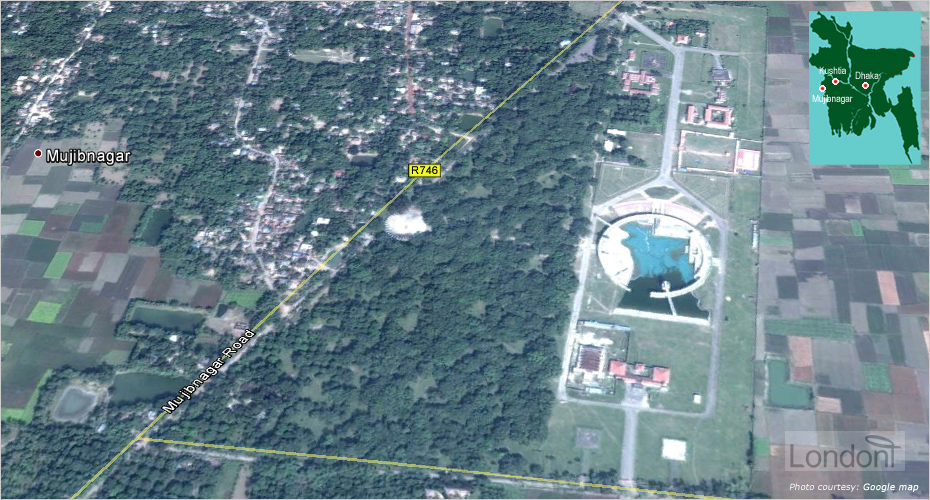
For now the location remained top secret. Only Amir-ul Islam, Tajuddin Ahmad and Golok Majumder would know about it. Nobody else..
There were drugs trafficking in Chuadanga. So people started fleeing border to India. Overcome with pressure, even Taufiq-e-Elahi came over. In such circumstances, when we were retreating, we had to carry out our Oath Ceremony. So we had to search for a more secure place. It was then while searching I asked Golok Majumder (Eastern Commander of BSF, India) for a map.
There was a ambaghan (mango grove) in Meherpur known as 'Boido Nath Babu's ambaghan', also referred to as 'Baidyanathtala'. Lets see if we can find that. He (Golok Majumder) said "Our BOP [Border Outpost] were nearby from that place. If we fit anti-aircraft gun from here, if there was any air attack (by Pakistan Army) we can provide assistance." So we decided to choose that place (i.e. Baidyanathtala).
Only Golok Majumder, and BSF knew about this place, and Tajuddin saheb and I. None of the leaders knew about it.
Bengal's death and birth under mango grove
Baidyanathtala also had a symbolic significance. The battle ground of Plassey near Murshidabad, Pachimbanga where Nawab Siraj-ud-Daulah fought his last battle with the (British) East India Company in 1757 was not very far away from Baidyanathtala. During that infamous battle Bengal lost its independence to the British thanks largely to the treachery of Siraj-ud-Daulah's Commander-in-Chief Mir Zafar Ali Khan (known more popularly by his short name Mir Zafar). Now, ironically, only few miles away from that battleground, the Mujibnagar Shorkar was poised to form a government for a new country of their own.
In one mango grove we lost our independence, in another mango grove we have regained it.
The date for the formal swearing ceremony was set for 17 April 1971.
[By then] We had already started calling it as "Bangladesh".
Golok Majumdar, Indian BSF
15 April 1971: Preparation for grand ceremony
Preparations for this momentous occasion began two days earlier.
Everybody around was busy trying to put up a makeshift stage. Wooden "charpies" were taken out from some poor men's bedroom to make a raised platform. Someone brought in a mike while yet another fetched a few chairs and spread sheets from the neighbouring church. Some bamboo pieces were cut down from the jungle and ropes were to be had from a home nearby.
A group of boys from the neighbourhood under the guidance of Shabuddin Sentu was practising national anthem in a chorus. Even a harmonium, a few tablas and a table were procured. Participants included Asad, Stephen Pinto Biswas and Monsur Molla. ASM Rab joined them at the last moment. Persons were being organised for recital from the holy books. Eventually, however, only Quranic verses were recited during the ceremony.
Mahbubuddin Ahmed (S. P. Mahbub), Bir Bikram
On Rustamji's order a bust of Sheikh Mujib was carried but Tajuddin Ahmad harked back, "Remove it immediately! If a bust was kept people would think he was dead. Remove it immediately!".
16 April 1971: Amir-ul Islam and Abdul Mannan meet foreign media as representatives of Government of Bangladesh
They made the strategic decision to hold a press conference. Amir-ul Islam and Abdul Mannan - both elected whips of parliament - were given the responsibility of bringing in foreign journalists from Kolkata for the oath ceremony. On 16 April 1971 both of them went to Calcutta Press Club. It was house full. The whole world's media was in that house. They met 100s of journalists, including dozens from foreign media. It was the first time two representatives of Bangladesh government were meeting foreign media. Amir-ul Islam and Abdul Mannan told them beforehand not to ask any question, they'll only say what they needed to stay.
They started their first-ever press conference by thanking everyone for letting everyone around the world know of their situation. Especially the atrocities on the Bengali people, the genocide. The press were spreading awareness of that genocide via electronic media and print media, for which they were grateful, on behalf of the people of Bangladesh and on behalf of their Government.
Amir-ul Islam and Abdul Mannan requested the press to be present the following morning at 8am as they had a 'message'. They didn't tell them what the message was (i.e. a new government was forming). It would be a surprise.
Short briefing over, the pair left the Calcutta Press Club.
We thanked them and acknowledged their presence from all over the world, and that they were giving us big service by informing everyone of the genocide within Bangladesh. Tomorrow, we will bring you a message in the morning, around 8am. Please be present to receive it.
17 April 1971: Formal oath ceremony of the first Government of Bangladesh
Early morning on 17 April 1971 all the media were present at Calcutta Press Club at 8am as was requested by co-whip Barrister Amir-ul Islam and Abdul Mannan. There were taxis waiting for them.
"Please get in the taxi. We welcome you on behalf of our government. Welcome to Bangladesh."
Nobody knew where exactly they were going - except the taxi drivers who were informed by Amir-ul Islam and Abdul Mannan. These taxi drivers were Indian BSF (Border Security Force) members. They drove for next two hours, approximately 125 miles (200 km) north.
Finally, they arrived at the village of Bhaberpara in Baidyanathtala in Bangladesh.
A large contingent of civis clad soldiers from the Indian side were standing behind tree trunks guarding the place from any possible enemy attack. A stage was set up as well as a small ceremonial gate decorated with leaves. On top of this triumphal arch it had the motto 'Joy Bangla' (Long live Bengal). A flag was tied to an indigenously crafted flagpole made out of a cut piece of bamboo fixed in front of the stage. The platform was set up under a huge mango tree awaiting the arrival of the leaders-in-exile from Kolkata first thing in the morning.
It was a major public relationship exercise staged with the full corporation of the Indian Government. Jeep loads of journalists crossed the Indo-Pakistan border with no interference from Indian frontier security men on duty at the marker post.
Less than a mile down the dusty track we came to our destination: the village of Bhabepara.
Richard Lindley, journalist of News at 10 (England) reporting from Bangladesh's oath ceremony on 17 April 1971
This place was considered safe because it was an enclave which could not be attacked from the air without crossing Indian airspace. For greater safety, Indian commandos were put on guard, thinly beyond normal perception in civilian clothes. It was tactical to keep off any possible curiosity about it on the part of foreign journalists. Bangladesh leaders and the authority in India both wanted to make sure that the show appeared to be fully organised by and under the control of the Bangladesh government in exile.
By about 10 in the morning, we managed to reach our destination. It was a big mango groove surrounded by green paddy fields, small hutments, mud houses and many mango gardens all around. There was a church in the vicinity. We halted at the border outpost manned by some EPR men who, as you know, had joined our ranks on the fateful night of 25th March and were guarding the border on our behalf. By the time we arrived at the place it was humming with people converging from different directions. Many young people with firearms could be seen loitering. Within a short time the entire garden was abuzz with "Joy Bangla" chants.
By then, Joy Bangla had become our war cry. It gave us rhythm and inspiration in our moments of danger as well as glory. It became a part of our independence war saga. People embraced death shouting it. People wrote this mantra with blood while in captivity; this was a magical slogan which united the Bengalee nation like a rock behind Bangabandhu Sheikh Mujib.
By about 11am we heard the honking of motor cars coming along the kutcha road running almost parallel to the border. Quite a few ambassadors carrying a large number of journalists and our leaders-in-exile suddenly appeared. The whole place dramatically took a festive look with clicks and flashes of camera.
The historic ceremony started at 11am. The place was now buzzing with senior party members, around 100 international journalist - collecting latest information about the current military and political situation - local MPs, and people from all walk of life. A crowd of 1,500 - 2,000 villagers, almost all men, attended the ceremony. Many women peaked through the reeds of thatched huts across the way.
Other high profile members who were present included Abdur Razzak, Tofail Ahmed, Abdul Quddus Makhan, A. S. M. Rab, Noor-e-Alam Siddiqui, and Nurul Kader Khan. Many other important people had missed the event as the venue and time were kept in secrecy for fear of enemy attack.
National anthem and guard of honour led by S. P. Mahbub commences ceremony
A few young men played harmonium and softly sang "Amar shunar Bangla, ami tumai bhalobashi" (My golden Bengal, I love you) - which was later adopted as Bangladesh's jatiyo sangeet (national anthem).
Major Abu Osman Chowdhury was supposed to lead the guard of honour, but he was running late. A panic-stricken Tawfiq-e-Elahi Chowdhury approached Mahbubuddin Ahmed (S. P. Mahbub) wondering what to do. Mahbub calmed him and reassured him that he was capable of conducting the armed salute. He had participated in many ceremonial guards of honour in the police academy as part of his training and also inspected many in his role as Sub-divisional Police Officer of Jhenaidah. He told Tawfiq to see to the guest while he sorts out the team.
Instantly, S. P. Mahbub called over 12 Ansars who were at the event and 4 constables who were with him already and gave that makeshift team a quick 5-minute rehearsal before the real thing.
The Ansar - an Arabic term meaning 'volunteer' - was a paramilitary auxiliary force created in 1948 and deployed originally around the border areas to preserve internal security and law enforcement. Now, they were more actively employed in confronting the West Pakistani troops, then only 20 miles or so away.
It was about half an hour after the arrival of the guests when Towfique came running, a little disturbed, and exclaimed, "(Abu) Osman (Chowdhury) Bhai has not arrived yet. Time is running out. The guests are in a hurry. Can you suggest what should I do?" Elaborating, he said, "Osman Bhai was asked to come prepared to organise guard of honour for the President after the oath-taking. He has not shown up." I told him, "Don't worry, I can do it." "Sure you can," Towfique nodded. I said, "Yes, of course. I myself visited many ceremonial guards of honour in the police academy as a training requirement. Besides, as Sub-divisional Police Officer I had to inspect guard every week. So, I know the drill and you need not worry. You prepare the guests, I prepare my boys. Go!"
Towfique was relieved of a great burden, it appeared. I went to a side and called my soldiers. I also asked them to call others who could be found in uniform and fall in line for a parade. Not many were found in uniform. Those who wore uniforms were not shipshape. Most of them have been sporting the same outfit for weeks with nothing to change. Some had tattered apparels and creaky boots. Some had bayonets fixed, others did not have any. It was a motely formation, if you like, with or without helmets, camouflage or no camouflage; "kisti topies" worn by some, others with police blue berets and myself wearing a green beret, one presented to me by Major (Abu) Osman (Chowdhury) on the day I was turned from a police officer into a Muktibahini captain to command troops in the battle fronts.
In fact, there was nothing uniform, except, of course, the 303 rifles and the firm determination and patriotism to destroy the Pak army wherever and however found. Hardly a dozen people drawn from as many as four different sources viz. Police, Ansar, EPR and civilian youth were on hand. I commanded them to stand in two rows with myself in front and carried out several chores of rehearsal. We practised shoulder arms and present arms several times. I had a .38 calibre revolver in my holster hung on the left side of my belt. I tried to command with a loud voice. It took about ten minutes to get ready.
We came around 7am - 8am. With 12 Ansars, S. P. Mahbub commanded us. We gave salute to Syed Nazrul Islam, then left for the cantonment in India.
Aziz Uddin Sheikh, member of Guard of Honour of 17 April 1971
We faced a peculiar problem: I arranged for some khaki clothing for General Osmani saheb and sent to him. The BSF had arranged it for him. But none of it fit him! That was a big crisis. So I asked (the BSF) to get a tailor from Boro bazaar, which they did.
So they custom-made his uniform which he wore as you've seen on TV (the next day). He gave the Guard of Honour wearing those clothes and was introduced as C-in-C (Commander-in-Chief).
Amir-ul Islam on the behind-the-scene efforts to ensure General Osmani's clothes fit him
Juggling their World War .303 rifles, the honour guard stood ready to receive the new government. S. P. Mahbub led the 16 "ragged-tagged volunteers" of Mukti Bahini - made up of 12 members of Ansars and 4 constables in 2 rows - and gave an armed salute to the provisional government. Vice President Syed Nazrul Islam took the salute and hoisted the Jatiyo Potaka (National Flag of Bangladesh), which was only designed few weeks prior by Bengali student Shib Narayan Das. With the green flag with the red disc in the centre hallowed by the golden map of Bangladesh raised to the passionate rendering of "Amar shunar Bangla, ami tumai bhalobashi", the ceremony began.
As soon as the flag hoisting and rendition of the national anthem synchronised, I raised my voice to the extreme and commanded "present arms" in honour of my flag heralding our identity to the world. When the flag reached the top of the pole it was tied, and Syed Nazrul Islam, the Acting President of The People's Republic of Bangladesh, appeared at the centre of the dais with MAG Osmani one step behind him on his right, clad in khaki and Tajuddin watching from the ground near the left end of the dais. In front of them and around the dais was the delirious crowd while my troops and I were facing them. Between the raising of the flag and the tying seconds I had commanded my troops back to attention with "order arms" and readied them for president salute. Syed Nazrul Islam's face was as determined as ours and the crowd was vibrant and wild with excitement. In a moment there was pin drop silence as the Acting President stood in front of us beaming with the pride of conviction. I felt my breath rising as I once again raised my voice to the extreme pitch and commanded shoulder arms and with a thud the rifles went up to the soldiers and were placed slanted at 45 degrees. My voice was already breaking but I could care a fig. With all the strength left in me I shouted "present arms". With double thuds the rifles behind me went up and stood erect and still in front of every soldier. The band of rifles stood unwavering like up-jutting minarets ready to pierce through the webs of Pakistani brutality and murder.
With some ceremony the acting president, Mr Syed Nazrul Islam took the salute and inspected the guard of honour.
...There was no mistaking the emotion the idea of an independent East Bengal aroused as the now-familiar flag was hoisted before the assembled cabinet.
As the applause died away, musicians played what has now become the national anthem, an old song composed by the great (Indian) Bengali poet Rabindranath Tagore - 'My golden Bengal, I love you'.
When Shunar Bangla was being sang, and we were giving salute, it felt like to me that we were giving salute to the Father of the Nation (i.e. Sheikh Mujibur Rahman). Bangabandhu was in front of us.
Professor Mohammad Yusuf Ali formally read out Proclamation of Independence
Though the ministers had been sworn in a week earlier oon 10 April 1971, this was to be their first appearance in public.
Professor Mohammad Yusuf Ali, teacher-turned-politician, formally read out the Proclamation of Independence. Prof. Yusuf was from the village of Farakkabad in Biral thana of Dinajpur district. He was elected a Member of the National Assembly (MNA) from Dinajpur-8 constituency in the general election of 1970.
Copies of the Proclamation was handed out to all the journalists who were present.
This is our first document of the Constitution.
Only two countries of the world had made the proclamations of their independences - one is the USA and another Bangladesh.
The proclamation of independence is historically very important, since we did not have our independence on the basis of any donation paper, but the proclamation of independence.
The independence of Bangladesh from Pakistani misrule is different from that of British colonial rule.
First leaders of the new nation
Long hours had been spent working out the details of the announcement of the government, its line-up and its objectives. Journalists from the global media had been privately transported from another country to make sure they were there to take in the measure of Bengali resistance to Pakistan. It was time to announce the first cabinet of newly-formed Bangladesh.
In absence of President-elect Sheikh Mujibur Rahman, this honour was appointed to Prof. Mohammad Yusuf Ali. The new cabinet members took their oath of office which was administered by Prof. Yusuf.
First cabinet of Bangladesh
- The imprisoned Sheikh Mujibur Rahman was selected as President
- Syed Nazrul Islam as Vice President (who was appointed Acting President in Sheikh Mujib's absence)
- Tajuddin Ahmad as Prime Minister
- Khondaker Mushtaq Ahmed as Minister for Foreign Affairs and Law
- Muhammad Mansur Ali as Finance Minister
- A. H. M. Kamruzzaman as Minister for Home Affairs, Relief and Rehabilitation
- Retired Colonel (later General) Mohammad Ataul Ghani Osmani as Commander-in-Chief of Bangladesh Forces
- Professor Yusuf Ali was appointed as potentiary (someone similar to present day Chief Whip in Parliament) and honorary secretary-general of the ministry of Relief and Rehabilitation headed by A. H. M. Kamruzzaman
- Amirul Islam was appointed Chief of the Volunteer Corps
- Abdul Mannan as Chief of Press, Information, Radio and Film
- Matiur Rahman as Chief of Commerce
- Major Mohammad Abdur (M. A.) Rab as Chief of Staff
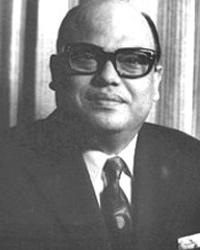
Syed Nazrul Islam
(1925 - 1975)
First President of Bangladesh in Mujibnagar government-in-exile in Kolkata. Post independence appointed Minister of Industries, the deputy leader in parliament and a member of the constitution committee. Vice President under BAKSAL government. Once professor of history at the Anandmohan College, Mymensingh. Also practised law in Mymensingh. Born in Jashodal Dampara, Kishoreganj zilla. Murdered, aged 50, in Dhaka Central Jail in infamous char neta killing of 3 November 1975.
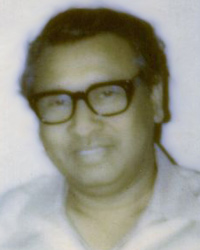
Tajuddin Ahmad
(1925 - 1975)
First Prime Minister of Bangladesh (1970). Formed the Mujibnagar provisional government during Muktijuddho. Served as Finance Minister (1972-1974) but quit over BAKSAL. Memorized Holy Qur'an with the guidance from father Moulavi Muhammad Yasin Khan. Obtained Economics degree from Dhaka University (1953) and Law degree. Murdered, aged 50, in Dhaka Central Jail in infamous char neta killing of 3 November 1975.
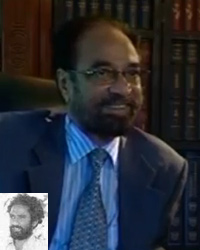
Amirul Islam
(Born 1936)
Senior Advocate of Bangladesh Supreme Court. Member of the drafting committee of for first Constitution of Bangladesh in 16 December 1972. Legal advisor to Awami League. Attended Harvard Law School. Chairman of Legal Education and Training Institute (LETI), Bangladesh Bar Council. Founder, Honorary Secretary General of Bangladesh Institute of Law and International Affairs (BILIA ) since 1972. Ex-President (1997-2000) of SAARC Law. Owner of Amir & Amir Law Associates.
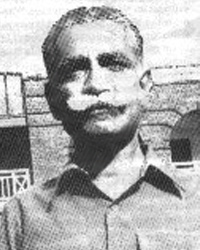
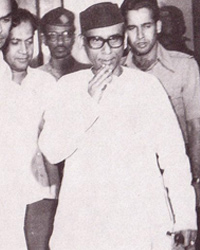
Khondaker Mushtaq Ahmed
(1918 - 1996)
Fifth President of Bangladesh. Foreign secretary during Mujibnagar government, but later replaced by Abdus Samad Azad. Under Sheikh Mujib's government (1972-1975) was Minister of Power, Irrigation and Flood Control. Executive Committee member in BAKSAL government. Took over the country after assassination of Sheikh Mujib. Proclaimed Indemnity Act to protect 15 August 1975 killers, which included nephew Colonel Abdur Rashid. Replaced national slogan of Joy Bangla with 'Bangladesh Zindabad' and changed Bangladesh Betar to 'Radio Bangladesh'. Removed from power by Major General Khaled Mosharraf on 6 November 1975. Attempted to salvage political career by forming Democratic League party in 1976 but to no avail. Jailed by Ziaur Rahman from 1976 till 1981. Obtained Law degree from Dhaka University. Born in village of Daspara, Comilla.
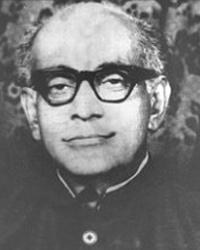
Muhammad Mansur Ali (aka Captain Mansur)
(1919 - 1975)
Minister of Finance during Mujibnagar government in 1971. Third PM of Bangladesh (25 Jan 1975-15 Aug 1975). Executive Committee member of BAKSAL. Help Sheikh Mujib form Jatiyo Rakkhi Bahini elite force. Achieved Masters degree in Economics and Law from the Aligarh Muslim University. Vice-President of the Pabna District Muslim League from 1946 to 1950. Joined Pakistan Army (1947) in Jessore, Bangladesh and achieved Captain ranking. Left army in 1951 to practise law in Pabna District Court. Son Mohammad Nasim was Bangladesh's Home Minister in 1996. Murdered, aged 56, in Dhaka Central Jail in infamous char neta killing of 3 November 1975.
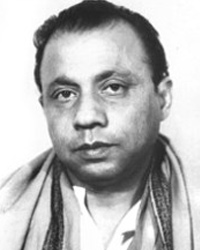
Abdul Hasnat Muhammad (AHM) Kamruzzaman
(1926 - 1975)
Minister of Relief and Rehabilitation in Mujibnagar government. Home Minister post independence. Active member of Muslim League. Joined Awami League in 1956. Elected to National Assembly of Pakistan in 1962, 1965 & 1970. Minister of Industries and Executive Committee member of BAKSAL government. Obtained degrees in Economics (University of Calcutta, 1946) and Law (Rajshahi University, 1956). Practised law in Rajshahi District bar association. Murdered, aged 49, in Dhaka Central Jail in infamous char neta killing of 3 November 1975. Buried in birthplace of Rajshahi.

Yusuf Ali
()

Abdul Mannan
()

Matiur Rahman
()
Chief of Commerce.
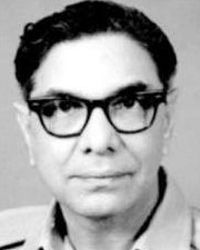
Mohammad Abdur (M. A.) Rab
(1919 - 1975)
Bir Uttom. Assistant Commander-in-Chief of Liberation war and first Army Chief of Bangladesh. Founded the Muktijoddha Kalyan Trust and ran it successfully for years. Former MP. Chairman of the governing body of International Medical College. Born in village of Khagaura, Baniachang thana, Sylhet. Died a bachelor on 14 November 1975 at the Combined Military Hospital, Dhaka, after suffering from ailments including anemia. Buried in his village of Umednagar on the banks of Khowai River in Habiganj.
Taufiq-e-Elahi Chodhury took the status of captain - he called himself 'Captain'. We asked him to join the civil service but he refused saying he wanted to fight (in the battleground). He was such fighting spirit that he wanted to participate in battles.
Amir-ul Islam on SDO Taufiq-e-Elahi Chowdhury's gallant decision
In Mujibnagar, elected leaders presented the Proclamation of Independence, formed a Bangladesh constituent assembly (to function in absentia), appointed the first cabinet of the Bangladesh government (to act in absentia), and declared Sheikh Mujibur Rahman the first president of Bangladesh (in absentia).
Dr. Viggo Olsen, author of 'Daktar: Diplomat in Bangladesh' (1996)
You have to link the resolutions of 1st March (1971) with 10th April (proclamation), which was then ceremoniously presented on 17th April to the rest of the world.
The story goes back to April 1971. It was a government driven by a cause. The men who were part of it, indeed shaped it, were the bravest of our political heroes. They were young men, dedicated to the cause of freedom. When you think back on Syed Nazrul Islam, Tajuddin Ahmed and A. H. M. Quamruzzaman, you cannot but be struck by the youth in them. M. Mansoor Ali was slightly older.
Professor Yusuf Ali was young. Barrister Amirul Islam was younger. MAG Osmany was of course a veteran in terms of age and service in the army, but all those others were young people, in their thirties. And all these people, fired by patriotic zeal, were there to wage war against the military might of an organized state.
They were all patriotic Bengalis responding to the call of Bangabandhu Sheikh Mujibur Rahman. And Bangabandhu, if you remember, was a mere 51 years old, in incarceration a thousand miles away from home. Bangabandhu and the Mujibnagar men, in broad terms, were emblematic of youth. And revolution could only come from the young.
Syed Badrul Ahsan, journalist
Speech by Acting President Syed Nazrul Islam and press briefing by Tajuddin Ahmad concludes ceremony
Once the cabinet was announced and oath of office administered, and with his ministers ranged behind him, Acting President Syed Nazrul Islam delivered his speech like any other Head of State and made an impassioned plea for recognition and international help.
...So I request the foreign journalist, convey to their respective nation that if liberty has got any sanctity to them, if democracy has any value to them, as [and] if human dignity has got any sense with them, then... to the civilised governments of the world... and the other Asian countries and to the European countries, to realise it, recognise it, to come to our help and to do something positive to elevate the misery of the unfortunate [mistreated] people of Bangladesh.
Part of Acting President Syed Nazrul Islam's speech during the official formation of the Gonoprojontontri Bangladesh Sthayi Shorkar (or Mujibnagar Shorkar)
Following this the new Prime Minister, Tajuddin Ahmad, briefed the press detailing the horrific events which lead to this day. In the 30-minute long speech the PM urged urged the world community to lend recognition to Bangladesh as an independent state and appealed to the world community to extend military cooperation to the new government.
Bangladesh is at war. It has been given no choice but to secure the right of self-determination through a national liberation struggle against the colonial oppression of West Pakistan.
...A final word to our erstwhile brothers in West Pakistan. Before God we tried to preserve this nation of Pakistan in spite of the oppression, neglect and servitude inflicted on us by your rulers these 23 years. But your leaders could neither tolerate the idea of sharing power with us nor would they let go of us sufficiently to let us control our own destinies. As a result, today, you - the people of West Pakistan are silent spectators to the genocide being committed on the people of Bangladesh by your rulers. By their acts of mass murder in Bangladesh the name of Pakistan will rank with the Mongols, the Huns and the Nazis in the history books. On your conscience you will carry till eternity the curse of our murdered wives, our dishonoured sisters, our slaughtered children. But more destructive to you, you will carry till eternity the curse of this army of butchers with you for years to come.
By God's grace and our unconquerable spirit every last man of this army of occupation will either be driven out or destroyed by the people of Bangladesh. Out of the ashes a new Bangladesh will rise committed to peace, democracy and social justice resting on secure foundations of creed, language, culture and race and held together by the shared experience of a struggle which must take its place in the epic struggles of our time.
Newly appointed Prime Minister Tajuddin Ahmad on 17 April 1971
Though his military commander, newly promoted General Osmani, must have told the cabinet how badly the war was going for the Bangladesh forces, the Prime Minister, Mr Tajuddin Ahmad refused to admit what every journalist there knew to be the realities of the situation.
Mr Tajuddin Ahmad, the new Prime Minister, decried the brutality of the West Pakistani army and the world's seeming indifference. But, unrealistically, they claimed control of much more territories than those of us, who have seen their situation deteriorate this past week, know they have.
The newly installed government of Bangladesh has tried to put the best possible face onto a very bad situation. And the most frank statement that was made here today is that Bangladesh needs the help of the world.
Barrie Dunsmore, journalist of ABC News (USA) reporting from Bangladesh's oath ceremony on 17 April 1971
The event was concluded with Major Abu Osman Chowdhury - who had finally arrived at the ceremony - leading a guard of honour to the Vice President while the entire gathering cheered "Joy Bangla, Joy Bangabandhu" (Long live Bangla, long live Bangabandhu) in sheer ecstasy, and in complete unison.
17 April is celebrated as 'Mujibnagar Dibosh' (City of Mujib Day) in Bangladesh in honour of their achievement and leadership.
It was a Herculean task. Organizing civil administration and the freedom fighters, securing arms for the latter and training them, mobilizing international support for the liberation war through intense diplomatic action, ensuring speedy communication and effective coordination of various activities at hundred different levels, above all, keeping the morale of the freedom fighters high throughout the dark, difficult, and strenuous days of the war, called for extraordinary wisdom, dedication, patience, foresight, courage, and tenacity on the part of the Mujibnagar government and all those connected with it.
The establishment of the Mujibnagar government was an absolute necessity for another reason. Had it not been put in place, it is reasonably certain that diffuse guerilla movements would have spawned all over the country without any form of central control. The danger inherent in such politics lies in an absence of legitimacy. And in Bangladesh's politics at that point in time, the absence of the Mujibnagar government would only have given the freedom struggle a clearly secessionist hue, to the immense delight of the Pakistanis and to the consternation of a Bengali population directly in the military's line of fire. Seen in such light, the presence of Acting President Syed Nazrul Islam and Prime Minister Tajuddin Ahmed with their colleagues deep in Meherpur in April 1971 was a clear, unequivocal statement of intent: that the elected representatives of the people of Bangladesh had taken it upon themselves to give shape and substance to an independent statehood for them.
Zahid Hossain, associated with the Mujibnagar government as the Chief of Psychological Warfare, Ministry of Defense
Baidyanathtala renamed to 'Mujibnagar' by Tajuddin Ahmad
By carrying out the oath ceremony in Bangladesh, and not in India, the Gonoprojontontri Bangladesh Sthayi Shorkar sent out a clear message that it was in fact operating from inside the country itself and it was truly a Bangladeshi government. A self-governing government, and not a puppet one.
It was a powerful statement.
Police also made contribution to economy of the war torn Bangladesh by handing over cash and gold ornaments.
As the news of attacking Rajarbagh police lines spread to Jhenaidah, the then SDP of Jhenaidah Mahbub Uddin Ahmed, Bir Bikram, immediately took away all cash and gold ornaments from the treasury of Jhenaidah Sub division.
When Mujibnagar Government was formed on 17 April 1971, he handed over Tk 4,40,00000 and 25 kg gold which was collected from Jhenaidah, Chuadanga and Meherpur treasury to the then finance minister M Mansur Ali. At the same time, he handed over Tk 20,00000 to Colonel Manjur at sector headquarters. The money receipts were preserved at the Liberation War Museum.
A new sunrise rose in the horizon.
The sunrise was witness to the first morning of our independence.
What if the Mujibnagar government had not taken shape? What if the men who would lead the armed struggle against Pakistan had chosen to spend the rest of their lives waiting for a negotiated settlement to the crisis? What if, in the absence of resistance, Pakistan had perpetuated its presence in Bangladesh and cast its ever-darkening shadow on Bengali heritage?
These are questions that need not be answered, seeing that history was to take an unambiguous course and was to lead the Bengali nation to its supreme triumph. Yet, prior to 17 April 1971, these fears were all too real for the nation to dismiss out of hand. Bangabandhu had been commandeered by the Pakistan army; and not one of us knew where the rest of the Awami League leadership echelon was at that point.
Syed Badrul Ahsan, Journalist
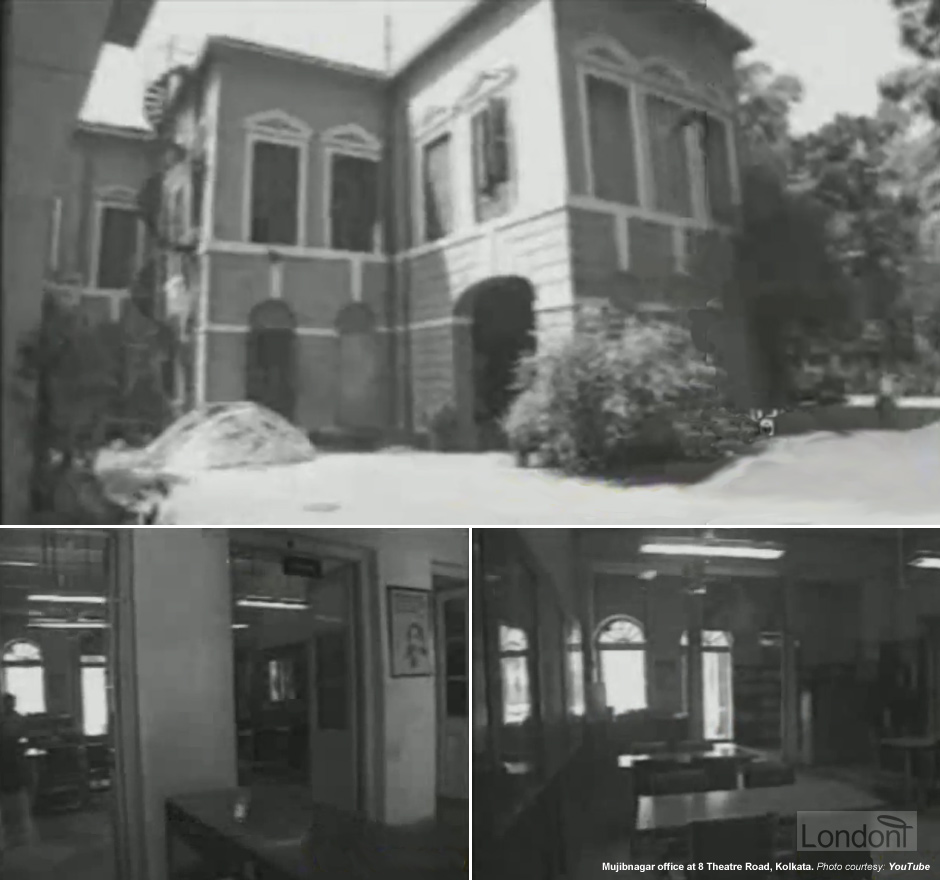
Government-in-exile in Kolkata
The political structure which Tajuddin Ahmad and his associates hurriedly formulated within 3 weeks of Sheikh Mujib's arrest would be the first Bengali government in history. Never before had Bengalis governed themselves.
In a bid to save themselves from the massacre of the Pakistani army and its collaborators, the provisional government fled the country and sought shelter in Kolkata, the capital of West Bengal, India. There, from a colonial mansion on 8 Theatre Road (later renamed Shakespeare Sarani), they coordinated the war efforts. The residence-cum-headquarter, once allegedly childhood home to Indian nationalist and guru Sri Aurobindo, was a big building with two floors. The leaders used to reside upstairs, whilst small 'pigeon hole offices' were made downstairs for other members. The hub of the headquarter was Prime Minister Tajuddin Ahmad's humble living and office room. Key conferences and decisions were taken here despite continuous fear of Pakistani commando and air attacks.
Lacking in money, human resource, facilities, and bargaining power, the Mujibnagar Shorkar continued it's work with a patriotic zeal. The aim was clear - liberate Bangladesh. Such was the dedication that many members vowed not to lead a normal family until the country was free. One such person was the newly appointed first Prime Minister of Bangladesh, Tajuddin Ahmad.
When Tajuddin Ahmad was finally reunited with his wife Zohra Tajuddin (nee Khatun) on 27 May 1971 at the home of Hossain Ali in Kolkata he told her about the vow. Even though he hadn't seen her or his young children for two months and had no idea whether they were still alive or dead during this turbulent period, he stuck to his vow and left promptly. He had met Zohra only for 7 minutes.
Around 1 am I heard a knock on my door. I opened the door and saw Hossain Ali standing there. He said, "Bhabhi, sir has come". I saw him coming - for 30 seconds I couldn't talk, I was just staring at him. I was thinking how to tell him about all the incidents. Then he abruptly said "Lets go in, lets see the children. Also I've to tell you something". We went inside the room. After seeing the children he said "Tomorrow you'll leave this house. This is an officer's house. You can't stay here. Besides, the most important thing this, we're now engaged in a war. We work day and night. We, the members of the cabinet have taken a vow that until our country is liberated we won't live family life anymore". He looked at his watch and slowly walked away - in total, just 7 minutes.
Tajuddin sir had taken a vow that as long as the country was not liberated he would not stay with his family. He was perhaps concerned especially for all those young men, who were supposed to live conjugal lives, were fighting and completely separated from their families so 'How could I being the Prime Minister lead a family life in this war situation?'. So as long as he stayed in 8 Theatre Road [Kolkata office of Mujibnagar Shorkar] his bedroom was next to his office room.
Amirul Islam on the PM's family sacrifice in favour of patriotic stance ,
The Mujibnagar Shorkar, consisting of the elected parliament members of the 1970 democratic election, worked day and night relentlessly for nine months until Bangladesh was eventually liberated. It undertook new, fresh initiatives, diversified its plan of action and organised the government into multiple division
It also supplied the sharply rising freedom fighters of Bangladesh with arms, and food with the active support of the Indian government.
There were, however, substantial limitations upon what New Delhi was prepared to do to support the Bangladesh liberation movement in this period [April]. The Declaration of Independence by the Bangladesh government in exile was, in effect, publicly ignored by India, which did not extend official recognition to this "sovereign" body until December [1971]. India closely supervised the Government of Bangladesh headquarters in Calcutta. The Awami League leaders issued public statements on occasion, but only after the External Affairs ministry's "representative" in Calcutta had cleared them. Some of the Awami League leaders resented this relationship of dependency to India, but they had no real alternatives available.
India's cautionary approach to Bangladesh liberation movement
